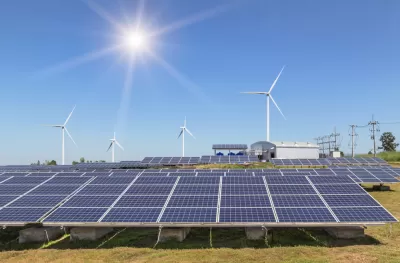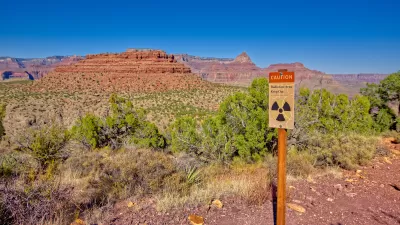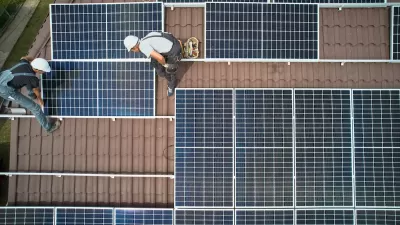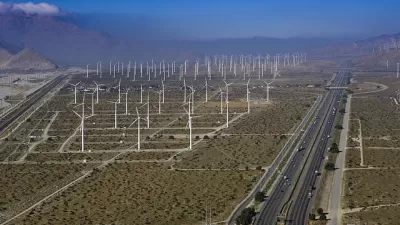The transition from fossil fuels to renewable energy must be equitable, ensuring that workers receive support, communities are revitalized, and degraded lands are restored to create a more sustainable and inclusive future.

As the global community moves from fossil fuels to renewable energy, the concept of a "just transition" is critical to ensuring that this shift is fair and inclusive. While some policies may favor oil and gas development, economic, environmental, and social factors are driving the long-term shift toward renewables. Market forces, state and local initiatives, and international climate commitments reinforce the need for a just transition, ensuring that workers, communities, and the environment are not left behind. Without a structured approach, this transition risks deepening economic inequality and worsening environmental injustices in already vulnerable areas.
For workers in fossil fuel industries, a just transition provides support through retraining programs, workforce development, and financial assistance, helping them transition into emerging sectors like solar and wind energy. Labor unions and advocacy organizations play a key role in securing fair compensation, pension guarantees, and reemployment opportunities. Including workers in decision-making processes further strengthens their role in shaping policies that affect their livelihoods and future job security.
Communities historically burdened by oil and gas extraction activities often face economic decline and environmental degradation when fossil fuel operations shut down. A just transition seeks to revitalize these areas through investments in clean energy, sustainable industries, and improved infrastructure, such as parks, transportation, healthcare, and education. Economic diversification is essential to ensuring these communities do not suffer prolonged job losses or economic stagnation as industries evolve.
Finally, just transition efforts must address land restoration in areas affected by extraction and pollution. Reforestation, soil remediation, wetland restoration, and repurposing of industrial sites into community assets—such as parks, renewable energy hubs, or affordable housing—can create hope and new opportunities while restoring ecosystems. By prioritizing equity and sustainability, a just transition not only mitigates the harms of fossil fuel dependency but also builds a stronger, more resilient future for workers, communities, and the environment.
FULL STORY: Just Transition

Planetizen Federal Action Tracker
A weekly monitor of how Trump’s orders and actions are impacting planners and planning in America.

Restaurant Patios Were a Pandemic Win — Why Were They so Hard to Keep?
Social distancing requirements and changes in travel patterns prompted cities to pilot new uses for street and sidewalk space. Then it got complicated.

Map: Where Senate Republicans Want to Sell Your Public Lands
For public land advocates, the Senate Republicans’ proposal to sell millions of acres of public land in the West is “the biggest fight of their careers.”

Maui's Vacation Rental Debate Turns Ugly
Verbal attacks, misinformation campaigns and fistfights plague a high-stakes debate to convert thousands of vacation rentals into long-term housing.

San Francisco Suspends Traffic Calming Amidst Record Deaths
Citing “a challenging fiscal landscape,” the city will cease the program on the heels of 42 traffic deaths, including 24 pedestrians.

California Homeless Arrests, Citations Spike After Ruling
An investigation reveals that anti-homeless actions increased up to 500% after Grants Pass v. Johnson — even in cities claiming no policy change.
Urban Design for Planners 1: Software Tools
This six-course series explores essential urban design concepts using open source software and equips planners with the tools they need to participate fully in the urban design process.
Planning for Universal Design
Learn the tools for implementing Universal Design in planning regulations.
Heyer Gruel & Associates PA
JM Goldson LLC
Custer County Colorado
City of Camden Redevelopment Agency
City of Astoria
Transportation Research & Education Center (TREC) at Portland State University
Camden Redevelopment Agency
City of Claremont
Municipality of Princeton (NJ)





























